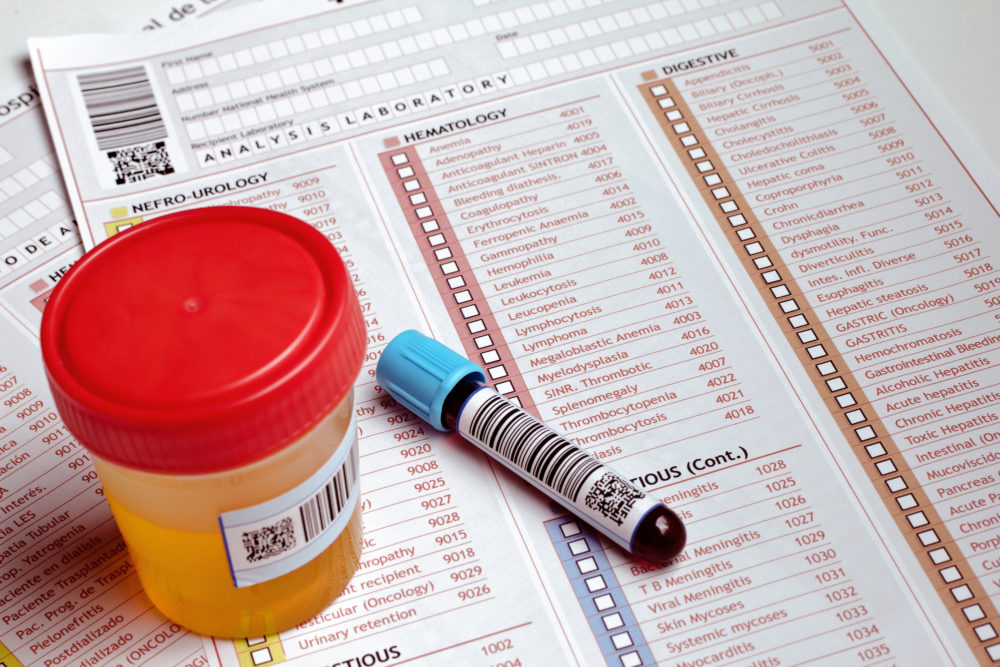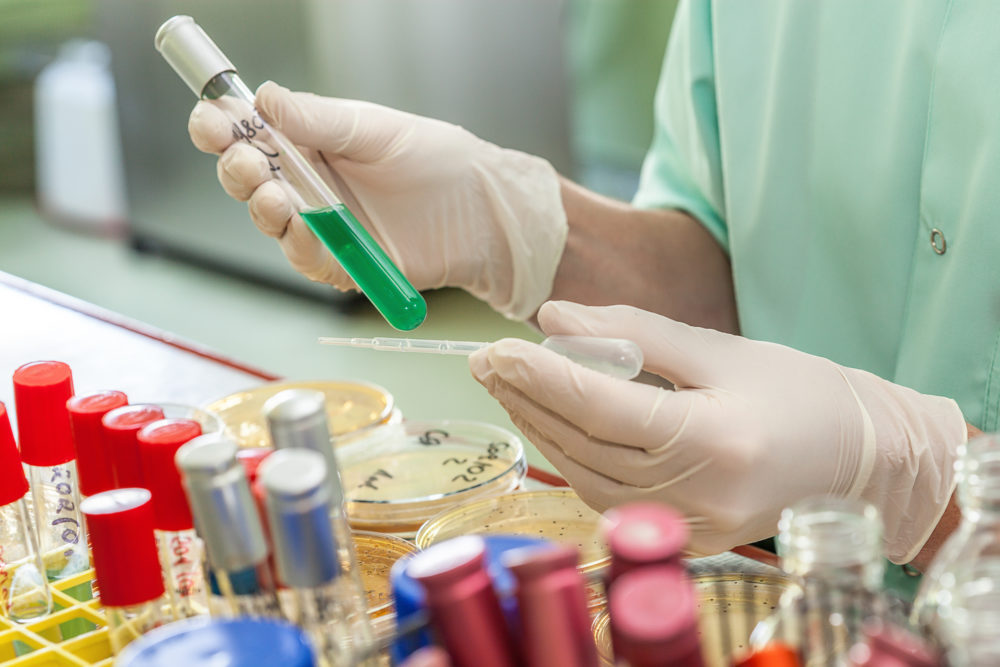Do CDL Schools Drug Test?
Do All CDL Schools Drug Test?
Operating a heavy piece of machinery is a high-risk and high-responsibility job. Operating any vehicle under the influence of drugs or alcohol heavily impairs your judgment and significantly slows down your response time. Operating a semi or other heavy piece of machinery can cause much more damage to the operator, as well as others around them.
This is why it is critical to screen potential drivers to ensure they are not operating the semi etc. while under the influence (or have a habit of drug or alcohol use). The drivers should be alert, aware and unimpaired to perform their job the best way they can.

Contents
All CDL schools do urine drug tests, but some don’t do the hair follicle test. According to a driver sharing online, Prime, Mercer and Landstar do urine test only.
DOT tests almost always use urine specimens, while non-DOT drug tests may use urine, saliva, or hair based on the state’s regulations. DOT testing uses a document called the Federal Drug Testing Control and Custody Form (CCF). In non-DOT testing, each state, employer, or drug testing company can develop its forms.
Who Is Required To Be Drug Tested For A CDL?
CDL stands for Commercial Driver’s License and this driver’s license is required to operate large, heavy, or placarded hazardous material vehicles in the United States in commerce. There are several different types of commercial motor vehicles (CMVs) that require a driver to hold a valid commercial driver’s license.
“To determine the license requirements for the driver of a particular vehicle or combination of vehicles, the weight rating of the vehicle is used to classify the vehicle. Essentially, federal and state law both require a CDL if the vehicle or combination of vehicles:
- Has a GCWR over 26,000 pounds including a towed unit with a GVWR over 10,000 pounds; or
- Has a GVWR over 26,000 pounds; or
- Is designed to transport more than 15 people or hazardous materials.” (Source: www.mcafeetaft.com)
Note: GCWR and GVWR refer to the manufacturer’s weight rating. In many cases, a travel trailer or a fifth wheel are excluded from CDL requirement, if used for personal use.
The DOT drug test is required for following situations:
- Pre-employment
- Post-accident
- Random
- Reasonable suspicion
- Return-to-duty
- Follow-up testing.
(Source: eld.kellerencompass.com)
Do Local CDL Drivers Get Drug Tested?
The DOT has issued very clear rules for drug testing. A CDL driver must get drug tested prior to beginning employment, as well as randomly each year of their employment. Further, if an accident occurs, the DOT accident checklist determines if a driver must be drug tested.
How Do CDL Schools Drug Test?
There are several different drug tests that are done: a hair follicle test and a urine test. While a hair follicle test can test one’s body for substance for the last 90 days, it is no longer allowed since 2021 for DOT and Federal workplace testing. The hair follicle test is very popular for non-DOT workplaces, however.
Urine Drug Test
The urine drug test can detect the following: marijuana, cocaine, opiates, methamphetamine, amphetamines, PCP, benzodiazepine, barbiturates, methadone, tricyclic antidepressants, ecstasy, and oxycodone.
The following companies do urine tests:
- Beelman
- Celadon
- Comcar CT
- Covenant Transport
- CRST
- Dayton Freight
- Falcon Transport
- Groendyke
- Henderson Trucking
- Hogan
- Jim Palmer
- Jacobson/XPO
- Martin Transportation Systems
- May Company
- Mercer
- Millis Transport
- Navajo
- Old Dominion Freight Line
- Oak Harbor Freight Lines
- P & S Transportation
- PAM
- Prime, Inc.
- R + L Carriers
- E. Garrison
- Southern Refrigerated Transport
- Stevens Transport
- TMC
- TransAm
- Trans-System
- TransWood Carriers
- Watkins Shepard
- Western Express
- Wil-Trans
- USA Truck
(Source: myautomachine.com)

Hair Follicle Drug Test
During a hair follicle test, at least 1.5 inches of hair are taken for substance test. There are several different panel tests when it comes to hair follicle test: the least extensive is a 5-panel test while the most extensive is the 17-panel test.
The most commonly tested substances are Marijuana, Cocaine, Opiates (Heroin, Morphine and Codeine), Amphetamines (Ecstasy, MDA, MDMA, and Methamphetamines), and PCP (Phencyclidine, also known as angel dust).
Certain prescription medication, as well certain foods such as poppy seeds can trigger a false positive on the hair follicle drug test.
While it is unlikely that the hair follicle test can detect a one-time drug use, it’s not worth a gamble, since the hair captures at least the last 90 days of one’s substance use history.
The following companies do hair follicle tests:
- AAA Cooper Transportation
- Averitt Express
- Big M Transportation
- R. England
- CFI
- Comcar CTL
- XPO/Con-Way Freight
- Crete
- Cypress Truck Lines
- Decker Truck Lines
- Dillon Transport
- General Motors
- Gordon Trucking
- Halvor Lines
- Heartland Express
- O. Wolding
- Hub Group
- Interstate
- JB Hunt
- KLLM/FFE
- Knight Transportation
- Lynden
- Maverick
- McElroy Truck Lines
- Metropolitan Trucking
- Melton
- Paschall Truck Lines
- Pride Transport
- Roehl
- Schneider
- Shell Oil
- Shaffer Trucking
- SuperService
- Swift Transportation
- Transport America
- USXpress
- Werner Enterprise
- WEL Companies: only if you have a previous failed test or conviction.
(Source: www.truckingtruth.com)
When Do CDL Schools Drug Test?
There are several different times when one is drug-tested: prior to start of the program, randomly during the program, during the year, as well as after any accident.
What Happens If You Failed A DOT Drug Test?
Should you fail your substance abuse test, you may be suspended immediately from your job. Further, you may lose your certification or license, as well.
A drug violation will stay on your record for 5 years or more.
Although there are some drivers who seem to slip through the cracks (www.ccjdigital.com), there are usually stringent requirements if one is able to recover their CDL license and job at all.
There is a return-to-duty process that is outlined on the DOT Website (www.transportation.gov). It requires a thorough substance abuse counseling to ensure one is really committed and serious about changing their life choices when it comes to drugs or alcohol.
Can You Retake A Failed DOT Drug Test?
After consulting with your Medical Review Officer (MRO), the physician responsible for reviewing the drug test results, you may request a retest within 72 hours of receiving the positive result.
FAQs
How long does it take to get your CDL?
On average, it takes between 19-24 days to get your CDL license. This depends, of course, on one’s skills and learnability. The goal should not be just to pass, but to be a safe driver on the road, as driving a semi or another big piece of machinery carries additional responsibility and safety risk.
Do non-CDL drivers need a DOT drug test?
No, they do not. Only CDL drivers are required to take a drug test by the DOT.
Do they watch you pee during a urine drug test?
Only if there is a reasonable suspicion that the first urine sample might have been fraudulent/tampered with. See www.transportation.gov.
Can a DOT physical detect synthetic urine?
Most often, yes. There are different tests and requirements that the test site uses to check the validity of the urine sample.
How many times can you fail a DOT drug test?
After initial failure you retake the drug test and if you fail again, you will be removed from your job and possibly lose your certification or license, as well.
Can DOT drug test you on the road?
If there is an accident that involves a fatality or someone requires treatment at the scene, the driver will have to go through a DOT drug test, regardless whether the driver receives a citation.
Also, Level I Roadside Inspections include a drug and alcohol test.
Can you still get a job if you failed a DOT drug test?
In most cases, a failed drug test will hinder your ability to get hired. You do, however, have an opportunity to retake the test (if you feel it’s inaccurate and you want to challenge its validity).
Do owner operators get drug tested?
Yes, in order to maintain a professional image (due to nature of job), as well as part of post-accident protocol when there is a loss of life.
